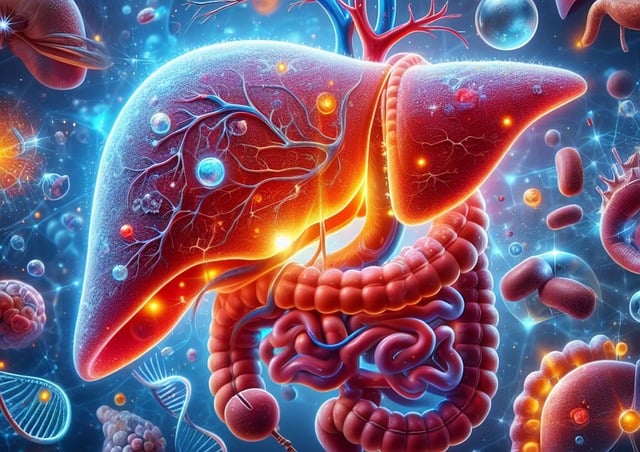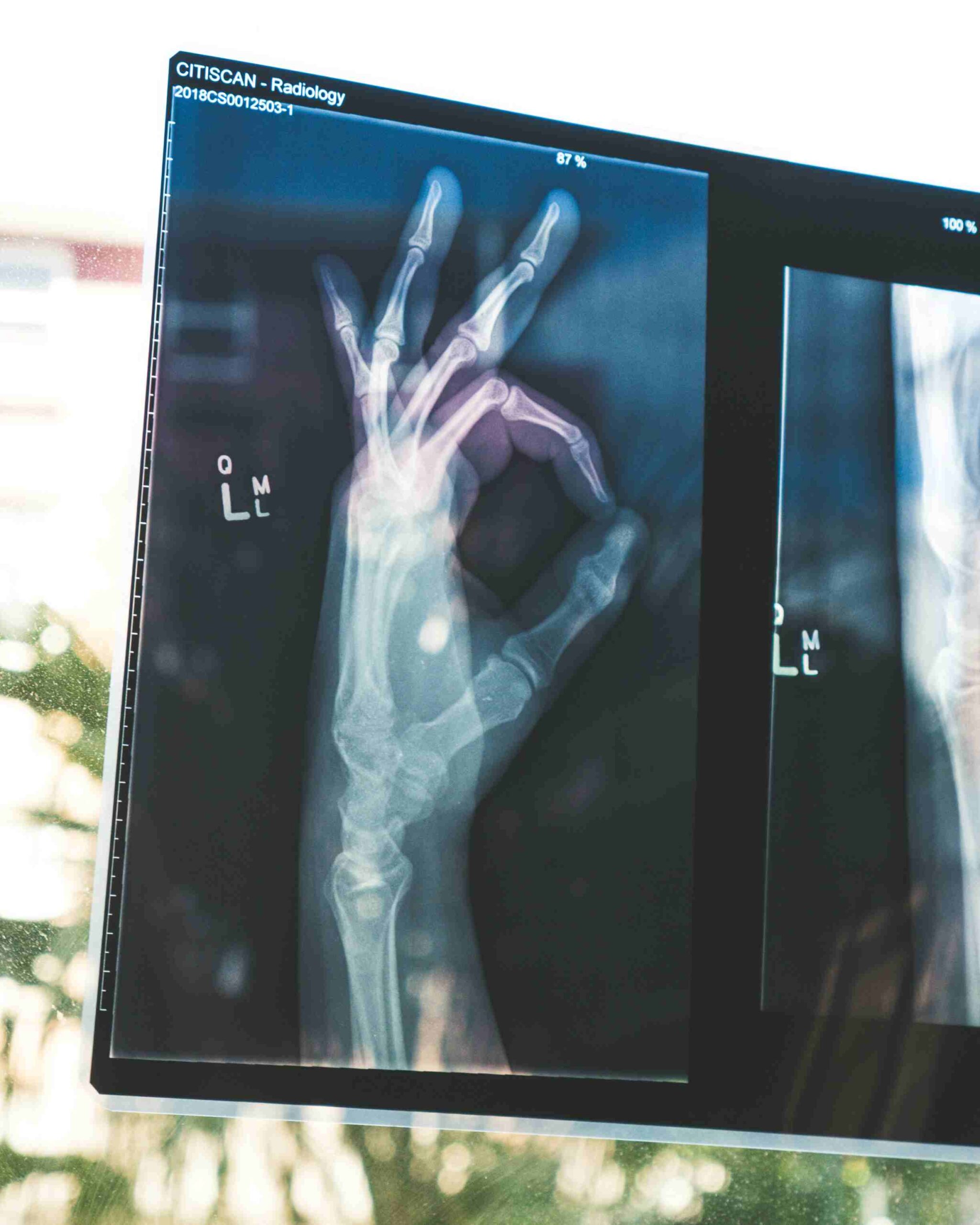
Feeling sluggish and low on energy can be incredibly frustrating, especially when you have a busy day ahead. While there are various factors that influence your energy levels, one of the most significant is your diet. The foods you eat provide your body with the fuel it needs to function, and making smart nutrition choices can help you maintain high energy levels throughout the day. In this comprehensive guide, we will explore how you can boost your energy with smart nutrition choices. We will delve into the types of foods that are best for sustained energy, the importance of macronutrients and micronutrients, meal timing, and other dietary strategies that can help you stay energized and focused.
Understanding Energy and Nutrition
Before we dive into specific foods and dietary strategies, it’s important to understand the connection between energy and nutrition. Energy in the body is produced through the metabolism of the foods we eat. The primary source of energy is adenosine triphosphate (ATP), which is produced in the mitochondria of cells from carbohydrates, fats, and proteins.
Different types of foods have different effects on your energy levels. For example, simple carbohydrates like sugar can provide a quick burst of energy, but this is often followed by a crash, leaving you feeling even more tired. On the other hand, complex carbohydrates, healthy fats, and proteins provide more sustained energy over a longer period.
The Role of Macronutrients in Energy Production
Macronutrients – carbohydrates, proteins, and fats – are the main components of our diet and play a crucial role in energy production.
1. Carbohydrates: The Body’s Preferred Energy Source
Carbohydrates are the body’s primary source of energy. They are broken down into glucose, which is then used to produce ATP. There are two types of carbohydrates: simple and complex.
Simple Carbohydrates:
Found in foods like sugar, honey, and processed snacks, these carbohydrates are broken down quickly, leading to a rapid spike in blood sugar and a quick energy boost. However, this is often followed by a sharp decline in energy, known as a sugar crash.
Complex Carbohydrates:
These are found in whole grains, vegetables, legumes, and fruits. Complex carbs are digested more slowly, providing a steady release of glucose into the bloodstream, which results in sustained energy levels.
To maintain high energy levels throughout the day, it’s best to focus on complex carbohydrates. Foods like oats, brown rice, quinoa, and sweet potatoes are excellent choices.
2. Proteins: The Building Blocks of Sustained Energy
Proteins are essential for growth, repair, and maintenance of body tissues. They also play a role in energy production, particularly when carbohydrate stores are low. Protein-rich foods can help stabilize blood sugar levels, preventing the spikes and crashes that come with simple carbohydrates.
Good sources of protein include fish, eggs, legumes, nuts, and seeds. Including a source of protein in every meal can help keep your energy levels stable throughout the day.
3. Fats: Concentrated Energy for Endurance
Fats are the most energy-dense macronutrient, providing 9 calories per gram compared to 4 calories per gram from carbohydrates and proteins. Fats are a crucial source of energy, particularly during prolonged periods of low-intensity activity.
There are different types of fats, and not all are created equal:
Unsaturated Fats:
These are found in foods like avocados, nuts, seeds, and olive oil. They are considered heart-healthy and are an excellent source of long-lasting energy.
Omega-3, Omega-6, and Omega-9 Fatty Acids:
These essential fatty acids, found in fatty fish, flaxseeds, and walnuts, are important for brain function and energy production. Including healthy fats in your diet, such as those from olive oil, nuts, and fatty fish, can help provide sustained energy, especially when combined with complex carbohydrates and proteins.
The Importance of Micronutrients
While macronutrients provide the bulk of your energy, micronutrients – vitamins and minerals – play a crucial role in supporting energy production and overall health. Deficiencies in certain vitamins and minerals can lead to fatigue and low energy levels.
1. B Vitamins: The Energy Vitamins
B vitamins, including B1 (thiamine), B2 (riboflavin), B3 (niacin), B5 (pantothenic acid), B6 (pyridoxine), B7 (biotin), B9 (folate), and B12 (cobalamin), are essential for converting food into energy. They help the body metabolize carbohydrates, fats, and proteins into ATP.
Good sources of B vitamins include whole grains, eggs, fish, legumes, seeds, and leafy green vegetables. Ensuring you get enough B vitamins through your diet can help keep your energy levels high.
2. Iron: Vital for Oxygen Transport
Iron is essential for the production of hemoglobin, a protein in red blood cells that carries oxygen from the lungs to the rest of the body. Without adequate iron, your body can’t produce enough healthy red blood cells to carry oxygen, leading to fatigue and low energy levels.
Iron can be found in two forms in food:
Heme Iron:
Found in animal products like fish, heme iron is more easily absorbed by the body.
Non-Heme Iron:
Found in plant-based foods like beans, lentils, tofu, spinach, and fortified cereals, non-heme iron is less easily absorbed. However, consuming it with vitamin C-rich foods like citrus fruits, tomatoes, and bell peppers can enhance absorption.
If you’re feeling tired all the time, it might be worth checking your iron levels, especially if you’re a woman, as iron deficiency is more common in women due to menstruation.
3. Magnesium: The Anti-Fatigue Mineral
Magnesium plays a vital role in energy production, muscle function, and relaxation. It’s involved in over 300 biochemical reactions in the body, including the conversion of glucose into ATP.
Magnesium-rich foods include leafy green vegetables, nuts, seeds, whole grains, and legumes. Getting enough magnesium through your diet can help prevent fatigue and improve overall energy levels.
4. Vitamin D: The Sunshine Vitamin
Vitamin D is essential for bone health, immune function, and energy production. It helps regulate the absorption of calcium and phosphorus, which are important for muscle function and energy metabolism.
The best source of vitamin D is sunlight, but it can also be found in foods like fatty fish, and egg yolks. If you live in a place with limited sunlight, especially during the winter months, you might need to consider a vitamin D supplement to maintain optimal levels.
5. Coenzyme Q10: A Powerhouse for Energy Production
Coenzyme Q10 (CoQ10) is a compound that helps produce ATP in the mitochondria. It’s also a powerful antioxidant that protects cells from damage.
Your body produces CoQ10 naturally, but levels can decrease with age or due to certain health conditions. Foods rich in CoQ10 include fatty fish, spinach, broccoli, and whole grains.

Smart Meal Timing for Energy
What you eat is important, but so is when you eat. Smart meal timing can help regulate your blood sugar levels and provide a steady supply of energy throughout the day.
1. Eat Regularly
Eating regular meals throughout the day can help prevent energy dips and keep your metabolism humming. Aim to eat every 3-4 hours to maintain steady blood sugar levels.
If you go too long without eating, your blood sugar levels can drop, leading to fatigue, irritability, and difficulty concentrating. On the other hand, eating too frequently or consuming large meals can lead to blood sugar spikes and crashes.
2. Balance Your Plate
At each meal, aim to include a balance of macronutrients – carbohydrates, proteins, and fats. This combination helps slow down the digestion of carbohydrates, preventing rapid spikes and crashes in blood sugar levels.
3. Stay Hydrated
Dehydration can quickly sap your energy and make you feel tired and sluggish. Water is essential for every cell in your body to function properly, and even mild dehydration can lead to fatigue.
Aim to drink at least 8 glasses (about 2 liters) of water per day, and more if you’re physically active or live in a hot climate.
Foods to Boost Energy
Now that we’ve covered the basics of macronutrients, micronutrients, and meal timing, let’s look at specific foods that can help boost your energy levels.
1. Oats
Oats are a whole grain rich in complex carbohydrates and fiber, which provide sustained energy. They also contain B vitamins, iron, and magnesium, making them an excellent choice for breakfast or a snack. You can enjoy oats as oatmeal or as part of homemade granola.
2. Bananas
Bananas are a great source of natural sugars, fiber, and potassium, which helps regulate fluid balance and muscle function. They’re an excellent snack for a quick energy boost and can be paired with nut butter for added protein and healthy fats.
3. Sweet Potatoes
Sweet potatoes are a nutrient-dense source of complex carbohydrates, fiber, and beta-carotene (a precursor to vitamin A). They provide long-lasting energy and can be enjoyed roasted, mashed, or as part of a hearty salad.
4. Nuts and Seeds
Nuts and seeds are rich in healthy fats, protein, fiber, and essential vitamins and minerals like magnesium and vitamin E. They’re a great snack to keep on hand for sustained energy throughout the day. Almonds, walnuts, chia seeds, and flaxseeds are all excellent choices.
5. Eggs
Eggs are a high-quality source of protein and contain essential nutrients like choline, which supports brain function, and B vitamins, which help convert food into energy. Hard-boiled eggs make a convenient snack, or you can enjoy eggs scrambled, poached, or in an omelet.
6. Leafy Green Vegetables
Leafy greens like spinach, kale, and Swiss chard are rich in vitamins, minerals, and antioxidants that support energy production and overall health. They’re also a good source of iron, which helps transport oxygen to your cells. Add leafy greens to salads, smoothies, or sauté them as a side dish.
7. Quinoa
Quinoa is a complete protein, meaning it contains all nine essential amino acids. It’s also a good source of complex carbohydrates, fiber, and iron, making it a great choice for sustained energy. Enjoy quinoa as a base for salads, in soups, or as a side dish.
8. Berries
Berries like blueberries, strawberries, and raspberries are packed with antioxidants, vitamins, and fiber. They provide natural sweetness and energy without causing blood sugar spikes. Add berries to your breakfast, or enjoy them as a snack on their own.
9. Dark Chocolate
Dark chocolate contains caffeine and theobromine, both of which can boost energy and improve focus. It’s also rich in antioxidants and minerals like magnesium. Enjoy a small piece of dark chocolate as an afternoon pick-me-up, but be mindful of portion sizes to avoid excessive sugar intake.

Additional Tips for Sustained Energy
Beyond your diet, there are other lifestyle factors that can impact your energy levels. Here are a few additional tips to help you maintain high energy throughout the day:
1. Prioritize Sleep
No amount of healthy eating can compensate for lack of sleep. Aim for 7-9 hours of quality sleep per night to allow your body to rest and recharge.
2. Stay Active
Regular physical activity helps boost energy levels by improving circulation, increasing oxygen supply to cells, and enhancing mood through the release of endorphins. Aim for at least 150 minutes of moderate-intensity exercise per week, such as brisk walking, cycling, or swimming.
3. Manage Stress
Chronic stress can drain your energy and lead to burnout. Incorporate stress-management techniques into your routine, such as deep breathing exercises, meditation, yoga, or spending time in nature. Learn more about stress in this article.
4. Limit Caffeine and Sugar
While caffeine and sugar can provide a temporary energy boost, they can also lead to crashes later in the day. Try to limit your intake of caffeinated beverages and sugary snacks, and instead focus on whole foods that provide sustained energy.
5. Listen to Your Body
Everyone’s energy needs are different, and it’s important to listen to your body and adjust your diet and lifestyle accordingly. Pay attention to how different foods and habits make you feel, and make changes as needed to optimize your energy levels.
Avoiding Energy-Depleting Foods
Refined Sugars and Processed Foods
Refined sugars and processed foods might seem like a quick energy boost for many, but these foods often lead to a rapid drop in energy. Foods high in refined sugars cause a quick spike in blood sugar levels, which is followed by a swift insulin release that rapidly lowers blood sugar levels. This results in feelings of fatigue, lethargy, and difficulty concentrating. Processed foods typically contain high amounts of refined carbohydrates, unhealthy fats, and chemical additives. These components can cause imbalances in energy levels, leaving you feeling tired and drained throughout the day. For more sustainable energy, it is important to choose natural and nutritious foods such as whole grains, fresh fruits, and vegetables.
High Glycemic Index Foods
High glycemic index (GI) foods cause a rapid increase in blood sugar levels. Foods such as white bread, white rice, potatoes, and sugary snacks can lead to a quick rise in blood sugar followed by a sharp drop. This can result in energy fluctuations and feelings of exhaustion throughout the day. Avoiding high GI foods helps maintain stable blood sugar levels, thereby supporting balanced energy levels. Instead, opting for low GI foods provides a steady and gradual release of energy, promoting long-lasting vitality. Examples of such foods include whole grains, legumes, and fiber-rich vegetables.
Individual Energy Needs
Age-Based Energy Requirements
Different age groups have varying energy needs. Children and adolescents require higher energy levels due to their growth and development processes. In this age group, consuming nutrient-dense foods is crucial. Adults, on the other hand, experience a decrease in metabolism rate, which leads to reduced energy requirements. Particularly for middle-aged and older adults, it is important to consume lower-calorie but highly nutritious foods to maintain energy levels. As individuals age, factors such as muscle mass reduction, decreased physical activity, and slower metabolism affect their energy needs. Therefore, creating an age-appropriate nutrition plan is essential to maintaining balanced energy levels.
Nutrition Based on Activity Level
A person’s daily physical activity level directly impacts their energy needs. Sedentary individuals require fewer calories compared to those with an active lifestyle. Sedentary individuals should focus on nutrient-dense, low-calorie foods to manage their weight and maintain energy levels. Moderately active individuals need a balanced intake of carbohydrates, proteins, and fats to sustain their energy levels. Those engaging in intense physical activity require higher carbohydrate and protein intake to meet their energy demands. Athletes and those in physically demanding jobs need to pay attention to their nutrition to support muscle recovery and replenish energy reserves. For these individuals, balancing between high-energy and quickly digestible foods with complex carbohydrates that are digested slowly is crucial.
Conclusion
Boosting your energy with smart nutrition choices is about more than just what you eat – it’s about creating a balanced and sustainable approach to fueling your body. By focusing on whole, nutrient-dense foods, balancing your macronutrients, and incorporating essential vitamins and minerals into your diet, you can maintain high energy levels throughout the day.
Remember that energy is not just about physical stamina – it’s also about mental clarity, emotional well-being, and overall vitality. By making smart nutrition choices, you can support all aspects of your health and enjoy a more energized, productive, and fulfilling life.
Subscribe to our newsletter, follow us on social media to let us know how you’re working towards a balanced life!
Women’s Hormonal Balance: Nutrition, Lifestyle, and Key Strategies for Optimal Health
Introduction Women's hormonal balance is a...
Liver Health: Natural Care, Foods, and Supplements
Introduction The liver is one of the...
The Effect of Micronutrients on Body Function
Micronutrients, which encompass vitamins and...
Foods that Naturally Increase Bone Density
Bone health is essential at every stage of life,...
Adaptogen Plants: Natural Ways to Manage Stress
In a world where stress is part of daily life,...
Vegan and Vegetarian Nutrition
Why People Choose Vegan and Vegetarian Diets...
Maximize Your Performance: Nutrition Before and After Exercise
Introduction Optimizing your nutrition...
Sustainable Nutrition and Eco-Friendly Consumption
Introduction to Sustainable Nutrition...
Strengthening Your Immune System Through Proper Nutrition
Introduction The immune system is our...










